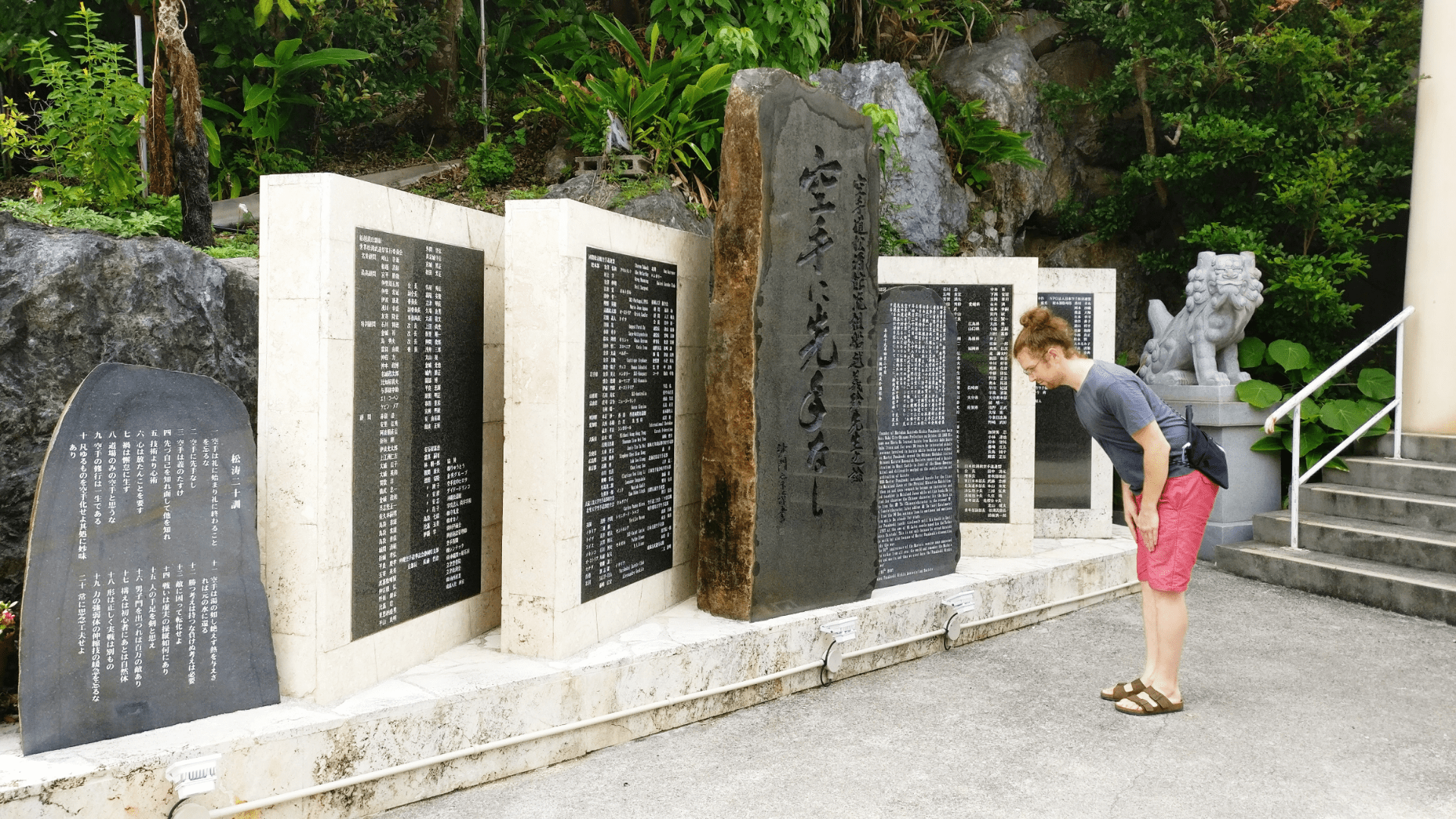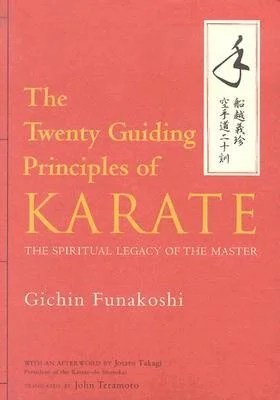
If there is ever a resource that acts as a top-notch guide and learning tool for all karateka it must be one of my all-time favourites that I constantly reference throughout my life.
Funakoshi Gichin’s “The Twenty Guiding Principles of Karate” – a.k.a. ‘the twenty precepts’ is a book that all Shotokan practitioners will have read and many Karateka from other styles will have surely heard of if not also read.
Considered an essential for everyone’s growing Karate library it is less of a training manual and more of a guide on how to set one’s approach to training and mindset for Karate.
I am fortunate to have a hardback copy from Kodansha that although is not a sacred first edition it is something which I cherish on my bookshelf – one of the few pieces of traditional media I own in this increasingly digital age.

I thought about doing a complete book review; however, not since third year university have I attempted such a thing, and I’d much prefer to spend more time looking at this work over the course of a month.
So, I thought I’d look at each Precept and write my thoughts and experiences of each one, how I have come to reflect on their meaning; perhaps rightly or wrongly.
I was going to say let’s look at number one, but of course they are all “Number One” – Hitotsu, so to be pedantic I’ll start from the precept that you’d read first on the list.
(I’ll be using the translation provided by Jesse Enkamp from his article here)
Karate-do wa rei ni hajimari, rei ni owaru koto wo wasuruna
Karate begins and ends with courtesy.
Step into nearly all Dojo and you’ll be greeted warmly, have your questions answered, shown a class and genuinely approached about whether you’d like to take part.
There are of course the outliers who will treat the Dojo like a pseudo military training camp and your expected to earn your respect through litres of sweat and agony on the dojo floor.
To each their own.
For Funakoshi Gichin to note this down at the beginning of his work is perhaps telling of his belief in the cultivation of the person through Karate-do above all else.
Sometimes Dojo will interpret this point as stating that Karate begins and ends with a bow (rei).
To Rei is of course to bow, but it is mainly to show courtesy, respect and thanks; unlike in some classes where the bow is committed to as much as a sniff of the nose and feels like a formality as opposed to a sincere expression – but I’m not here to gripe.

What I am trying to say is Karate does not start with a bow, but with respect; and if your in a Dojo that doesn’t respect you, or have a respect for others then it is not, in my opinion and that of Funakoshi Gichin, practicing a fundamental tenet of Karate.
In my own personal experience, I have had a lack of respect for others, having grown up being shown little respect from others around me.
Fortunately, I have had many others a long my life’s journey who have shown me respect, both given and earned, and I have come to learn the many ways in which I can show my genuine respect for others, as well as compassion for those who may lack the same ability.
On reflecting about the nature of respect, when I was younger, I did show respect, but mainly as a formality at times, except for those that I felt genuine respect for.
Today, however, I do my utmost to show and truly be respectful of others, as everyone is on their own journey in life and have experiences we may never understand.
Perhaps however it can be difficult to see, and for others to see in you, the respect that you hold as we all judge based on a person’s actions, mixed in with our preconceived notions and expectations.
This is to be human, to see others and life through our own lens, which perhaps is merely a reflection of what we see in ourselves, which to me can help you to consciously understand whether or not you respect others, by whether or not you respect yourself.
Have you read this text? What is your thoughts on this Precept on respect? How would you apply this philosophy?
Leave a comment